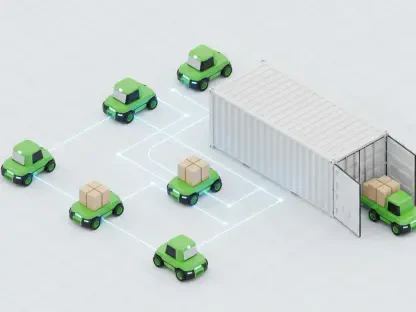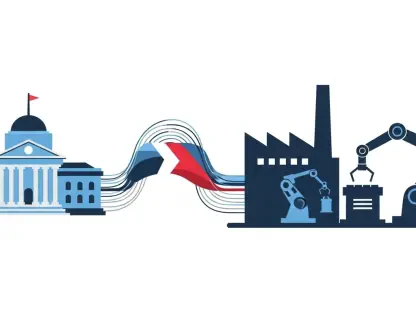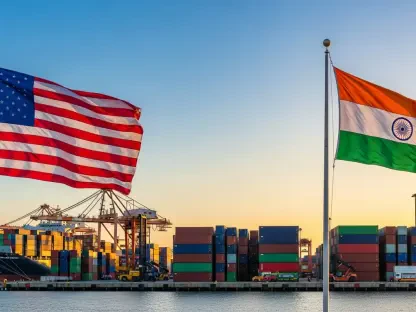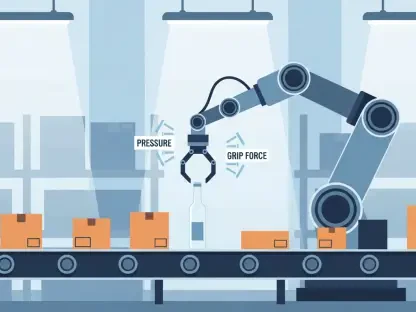Artificial Intelligence is revolutionizing industries, with its impact profoundly felt in supply chain and logistics. As the global market landscape shifts, organizations are increasingly leaning on AI’s capabilities for enhancing resilience and responsiveness. AI technology is central to helping businesses navigate complex supply chains, manage inventory efficiently, optimize routes, and forecast demand with greater accuracy. These advancements are not only improving operational efficiencies but also elevating the level of customer service.AI-driven tools offer predictive analytics, real-time decision-making, and automation of tedious tasks, which mitigates risks and ensures more precise planning. This high-tech approach to supply chain management empowers companies to adapt quickly to market changes and customer needs. The integration of AI is pivotal for companies aiming to remain competitive in today’s fast-paced, globalized economy. By implementing AI strategies, businesses can achieve a robust, agile supply chain framework that meets the modern expectations of efficiency and customer satisfaction. As AI continues to advance, its role within logistics and supply chain operations will only become more integral, further transforming these sectors into smart, technology-driven entities.
AI-Enhanced Real-Time Visibility
Tracking and Response Capabilities
In today’s fast-paced logistics environment, real-time visibility is a critical element for maintaining operational excellence. Advanced AI-driven systems play a crucial role in providing instant access to key data about inventory and shipments in motion. This heightened level of insight empowers businesses to react quickly to any unexpected changes or disruptions, maintaining a smooth supply chain.The ability to adapt rapidly to supply chain issues is not just advantageous—it’s indispensable in an era marked by frequent market fluctuations. Companies that can efficiently pivot in the face of supply chain challenges are set to outperform their competitors. As such, adopting AI technologies to achieve real-time awareness isn’t merely a strategic advantage; it’s a necessity to remain competitive and lead in a tumultuous market landscape. Industry frontrunners will be those who harness the power of real-time data analytics to ensure a resilient and responsive supply chain.
Demand Forecasting Precision
Artificial Intelligence is revolutionizing supply chain efficiency by enabling precise demand forecasting. It analyzes complex data, including past sales and live social media trends, to predict consumer demand with remarkable accuracy. This capability prevents the pitfalls of overstocking or understocking by maintaining a balanced inventory tailored to market demands. Enterprises that harness AI for forecasting can navigate through market shifts with a level of agility formerly unattainable. As a result, these organizations enjoy a competitive edge, as they’re able to respond to market signals before they manifest into larger trends, ensuring they meet consumer needs while managing inventory effectively. This strategic element of supply chain management underscores the transformative impact AI has on operational adaptability and economic efficiency.
AI-Driven Warehouse Optimization
Enhancing Picking and Storage Efficiency
In contemporary warehouse environments, AI is revolutionizing how goods are stored and retrieved, pushing operational efficiency to new heights. Smart algorithms now determine the most strategic locations for inventory, prioritizing items that see higher demand so they are more readily available. This streamlining of storage and retrieval paths significantly hastens the fulfillment phase, ensuring quicker dispatch of products to consumers.This upgraded organization not only speeds up the supply chain process but also reduces errors attributable to manual handling. With intelligent systems at the helm, the frequency of missteps drops, bolstering the precision and reliability of warehouse operations. The adoption of such AI-driven optimization is increasingly vital for businesses aiming to stay competitive in a market where speed and accuracy are tantamount to success. Deploying these sophisticated technologies enables enterprises to surpass traditional logistical limitations and meet the growing expectations of their customers.
Integration of Autonomous Mobile Robots
Autonomous Mobile Robots (AMRs) showcase the profound impact of AI in modern warehouses. These smart robots, leveraging machine learning and sensor technology, excel at tasks like picking products and restocking efficiently and autonomously. This collaborative effort with humans enhances productivity and reduces labor strain. The presence of AMRs signifies a leap into a high-tech era for warehouses, signifying AI’s significant contribution to supply chain evolution.AI is recasting the logistics landscape with such innovations, driving efficiency to meet dynamic market needs. Forward-thinking companies adopting AI secure a competitive advantage, ensuring they thrive in a business world where adaptability is key. AI is actively sculpting the commerce of tomorrow through its transformative role in supply chain and logistics.









